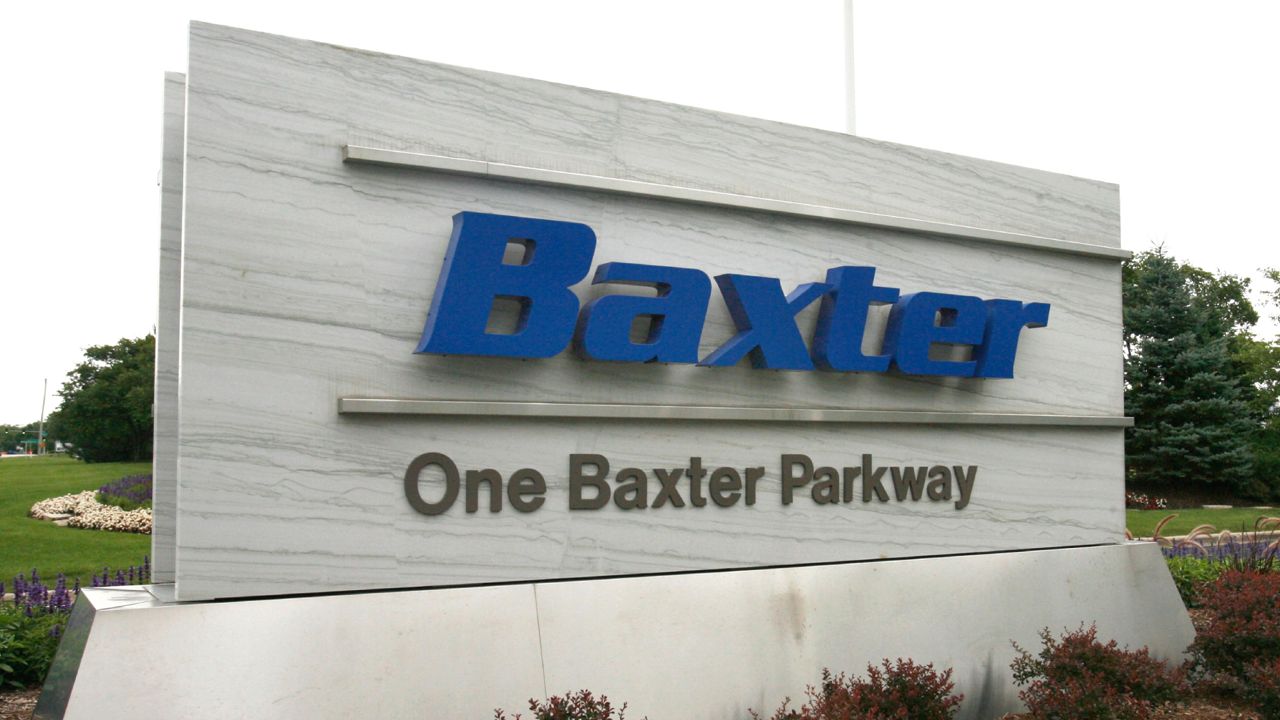OHIO — Hurricane Helene caused severe damage when it hit land, including fatal flooding to the southeast as it moved into North Carolina, South Carolina and Tennessee.
Among the damaged businesses and homes was a Baxter International plant in North Cove, North Carolina, responsible for manufacturing much of the country's sterile intravenous, or IV, fluid supply and for fluids used by some patients on home kidney dialysis.
On Oct. 1, the state's health department was informed of a potential shortage of IV fluids because of the damage to the plant. The Ohio Department of Health went to work with partners at regional, state and national levels.
Ohio Department of Health Director Dr. Bruce Vanderoff sent a letter Friday to health care leaders and stakeholders around the state to share updates on a statewide effort to monitor levels of IV solution.
Vanderoff said in his letter coordination efforts are continuing with hospital zone leads, regional health coordinators, the Ohio Hospital Association, the Ohio Pharmacy Services Center among others. The goal is to push for a statewide approach in terms of situational awareness, information sharing, data collection and developing a strategy.
ODH created a data-reporting event through EMResource, a web-based, near-real-time resource management program used by hospitals, to track IV fluids. The tracking was activated on Oct. 4 and requires all Ohio hospitals to report the IV fluid data daily.
"We have seen our hospitals engaging in more efficient methods of delivery and conservation measures aimed at responsibly managing IV fluid volume use, while maintaining the same level of care," said Vanderoff in his letter. "The partnership has also assisted regional healthcare coalitions to maintain situational awareness and to support individual facilities’ requests for critical resources, including resource sharing between hospitals when necessary."
Baxter announced on Oct. 9 that there were significant increases in allocations of IV solutions nationwide, allowing increases in allocations to direct customers from 40% to 60% and from 10% to 60% for distributors. Vanderoff said that Baxter reported it anticipates more increases over the coming weeks. More information on developments at Baxter can be found here.
"We also have been encouraged by the U.S. Food & Drug Administration’s (FDA’s) announcement Wednesday that they are lifting some restrictions on organizations that have the ability to compound these vital IV solutions, including the innovative outsourcing facilities regulated by section 503B of the Food, Drug and Cosmetics Act," Vanderoff said in the letter. "This clears the way for ODH to work actively with companies who have advanced compounding capabilities to potentially add more supply to healthcare facilities."
The FDA also said hospitals and health systems preparing sterile IV solutions within their pharmacies are able to distribute within their own facilities outside a 1-mile radius.
On a state level, the Ohio Board of Pharmacy gave guidance for hospital pharmacies to allow sale and shipment of IV and peritoneal dialysis solutions through out-of-state facilities. Hospitals can also submit proposals to help with potential shortages for consideration by the board.
"These developments should do much to help alleviate the current situation, and we are hopeful the supply will improve soon," Vanderoff said. "In the meantime, I will continue having regular, high-level coordination meetings between our ODH team, hospital leadership, and the Ohio Hospital Association to ensure we maintain strong and consistent levels of collaboration until this situation is resolved."
Vanderoff said the disruption of the supply chain has created challenges nationwide, but that thanks to partnerships the state has responded appropriately.
"While we are hopeful for additional supply to soon provide relief, as a collective statewide healthcare ecosystem, we will continue to closely monitor the situation amid the ongoing shortage," Vanderoff said. "At the same time, we are cognizant of the damage done by Hurricane Helene and Hurricane Milton, and we mourn the loss of life and destruction being experienced by people living in the impacted areas."



